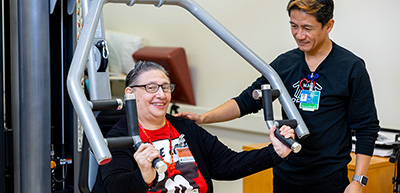Illinois Is Latest State to Offer Program of All-Inclusive Care for the Elderly

WASHINGTON, DC – JULY 16, 2024 – Illinois is the latest state to offer the Program of All-Inclusive Care for the Elderly (PACE), an innovative model of care that could solve the nation’s senior care crisis. With the recent opening of OSF PACE in Peoria, IL, nearly 77,000 seniors in 33 states and the District of Columbia now participate in PACE, reports the National PACE Association (NPA).
PACE continues to grow quickly, with 167 PACE programs currently operating around the country.
“No one wants to have disjointed care for themselves or their elderly loved one who is at risk of a nursing home placement,” Nathan Pritzker, executive director of OSF PACE, said in a press release. “We walk alongside the individual, support them in their needs and journey, and help them be independent longer and healthier so they can stay in their home and community.”
PACE empowers older adults and people with disabilities to live at home and in their community when they are eligible for nursing home care. PACE participants receive primary care, long-term services and supports, medications, therapies, behavioral health, meals, socialization at their local PACE center, and other care and services. All their health care, nutrition, transportation and other needs are identified in an individualized care plan that is carried out by a dedicated interdisciplinary team.
“PACE is a model that works. It allows seniors to live independently in their homes with all of their health care needs met,” said Shawn Bloom, president and CEO of NPA, which represents and advocates for PACE. As more Americans age and families struggle under financial pressure to care for loved ones, “the PACE model can dramatically increase their quality of life and provide an alternative to nursing home care.”
The National PACE Association (NPA) works to advance the efforts of PACE programs, which coordinate and provide preventive, primary, acute and long-term care services so older individuals can continue living in the community. The PACE model of care is centered on the belief that it is better for the well-being of seniors with chronic care needs and their families to be served in the community whenever possible. For more information, visit www.NPAonline.org and follow @TweetNPA.
